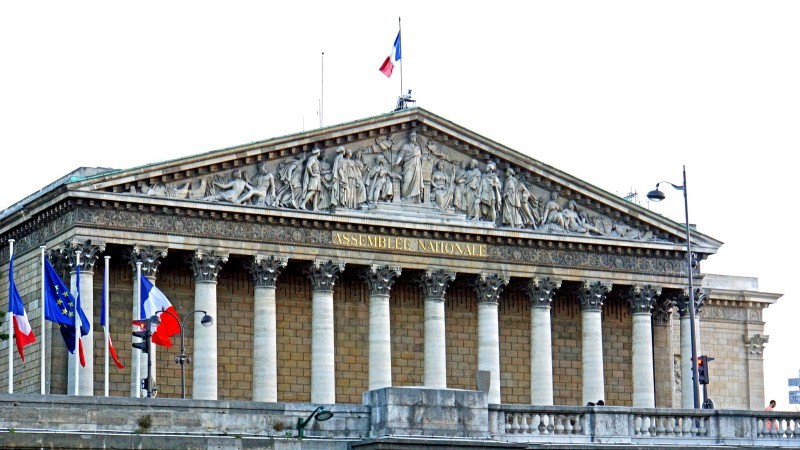Human rights abuses committed by the government of Bahrain against its own people are being discussed in French Parliament. Three members of the National Assembly, from three different political parties, are openly discussing the human rights violations occurring in Bahrain. They are openly scrutinizing the close relationship which the French government has with Bahrain, something which could call into question France’s values for the appearance of French support for “the regime in power” and it “intolerable persecutions.”
Each of these MPs have publicly and officially given voice to a reality in Bahrain that other western leaders have so far failed to do – that of the methods by which the Bahraini monarchy prevents democracy from coming to a country that wants it, and of the human costs resulting from the monarchy’s abuses.
MP David Habib spoke of the prisoners of conscience in Bahrain, specifically Hassan Mushaima, and demanded for the French Minister of Foreign Affairs to indicate what actions the government will initiate to pressure the Bahraini regime to release the political prisoners it has languishing in its prisons.
In his public address in the National Assembly last week, MP Habib referenced the case of imprisoned Bahraini political leader Hassan Mushaima and the medical negligence he has endured at the hands of Bahraini prison officials during his ongoing imprisonment. Mr. Mushaima was a leader of the political opposition in Bahrain and a founding member of Al Wefaq – which was the largest political opposition movement prior to its government dissolution in 2016. He has been serving his life sentence in Jau Prison since 2011, after being charged with offenses directly related to his peaceful involvement in pro-democracy demonstrations.
MP Habib included in his remarks the thousands of other prisoners of conscience being held by the government of Bahrain in its prisons. He characterized this situation as a “massive repression that affects many human rights defenders” and stated the necessity of France engaging “real diplomatic pressure for these violations of human rights” in Bahrain.
MP Pierre Dharréville warned the French Minister of Europe and Foreign Affairs of the Bahraini government’s elimination of political freedoms and civil society. The MP asked what the Foreign Minister and French diplomacy plans to do to address what are the “proven non-respect for human rights in Bahrain.”
MP Dharréville gave a detailed accounting in the National Assembly of the human rights violations perpetrated by the government of Bahrain. His comments included the violent repression of the 2011 “people’s uprising in favor of democracy, human rights
and against social inequality,” Saudi Arabia’s military support of this violent repression, the Bahraini monarchy’s ongoing “very harsh repression, crushing all opposition,” and the systematic harassment, prosecution, and imprisonment of opponents to the “regime.”
Illustrating how the government of Bahrain suppresses criticism and alternatives to its oppressive rule, MP Dharréville also spotlighted the case of Hassan Mushaima. His remarks included the facts of how political opponents are treated in Bahrain, that they are “arbitrarily imprisoned and are also victims of mistreatment, abuse, and torture” and that “human rights activists and advocates are subject to widespread surveillance through the Israeli spy software Pegasus.”
MP Philippe Gosselin spoke in the National Assembly asking the Foreign Minister what it plans to do to put an end to the persecutions, “arbitrary torture and executions” that are taking place in Bahrain. Raising the Foreign Minister’s attention to the fear the people of Bahrain daily live in and to the abuses reported there by “international observers,” he correctly identified that the abuses and violations by the Kingdom of Bahrain “mainly target political activists and human rights defenders.” Like his colleagues in the National Assembly, MP Gosselin noted some of the characteristic abuses of the monarchy in its mission to keep democracy out of the country are “restrictions imposed on freedom of movement, nationality deprivations, as well as torture and other ill-treatment inflicted in detention.”





